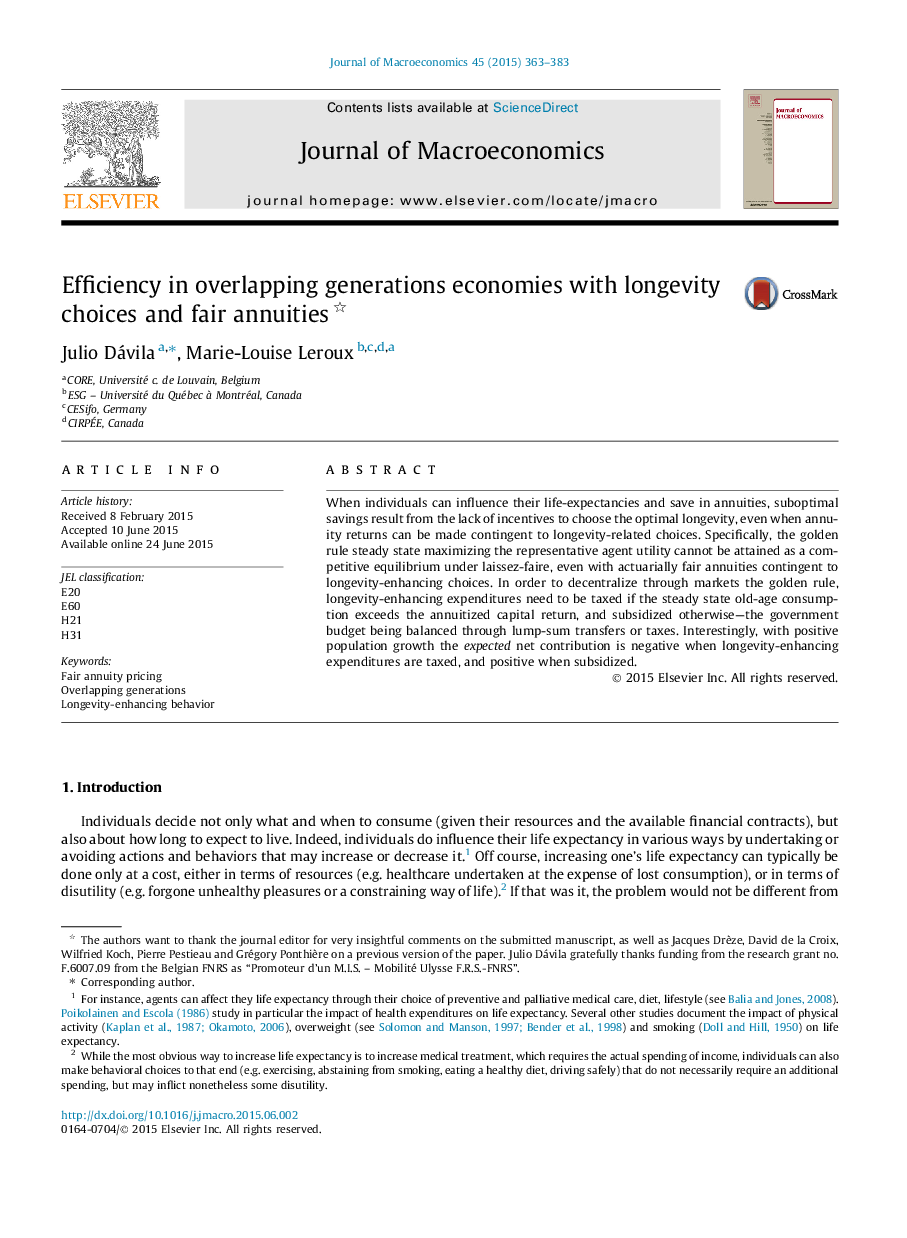| Article ID | Journal | Published Year | Pages | File Type |
|---|---|---|---|---|
| 965771 | Journal of Macroeconomics | 2015 | 21 Pages |
Abstract
When individuals can influence their life-expectancies and save in annuities, suboptimal savings result from the lack of incentives to choose the optimal longevity, even when annuity returns can be made contingent to longevity-related choices. Specifically, the golden rule steady state maximizing the representative agent utility cannot be attained as a competitive equilibrium under laissez-faire, even with actuarially fair annuities contingent to longevity-enhancing choices. In order to decentralize through markets the golden rule, longevity-enhancing expenditures need to be taxed if the steady state old-age consumption exceeds the annuitized capital return, and subsidized otherwise-the government budget being balanced through lump-sum transfers or taxes. Interestingly, with positive population growth the expected net contribution is negative when longevity-enhancing expenditures are taxed, and positive when subsidized.
Keywords
Related Topics
Social Sciences and Humanities
Economics, Econometrics and Finance
Economics and Econometrics
Authors
Julio Dávila, Marie-Louise Leroux,
